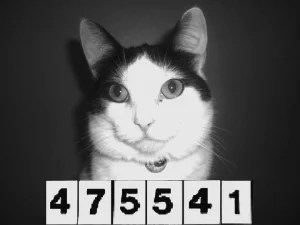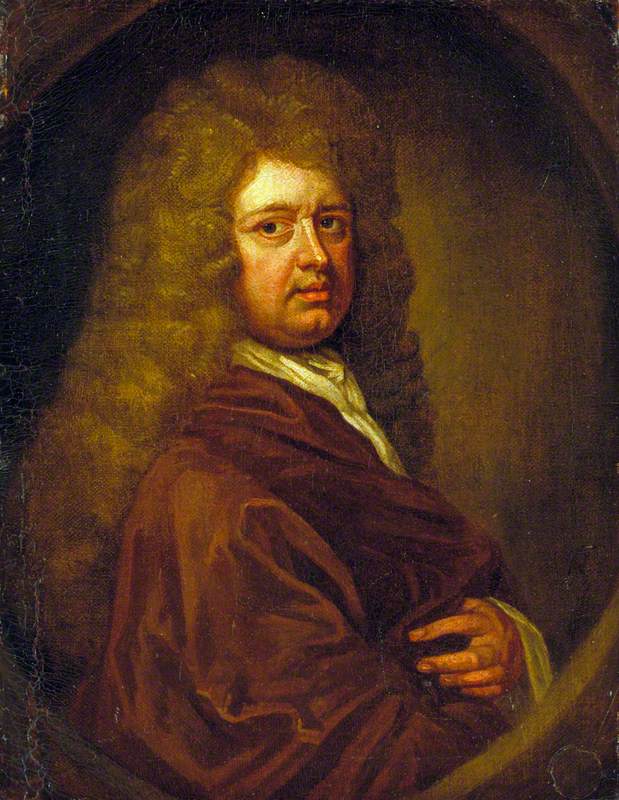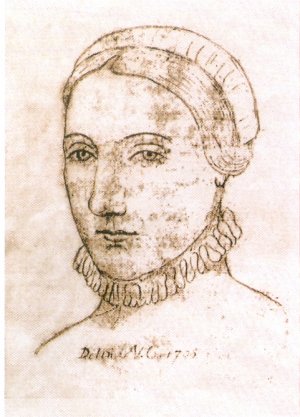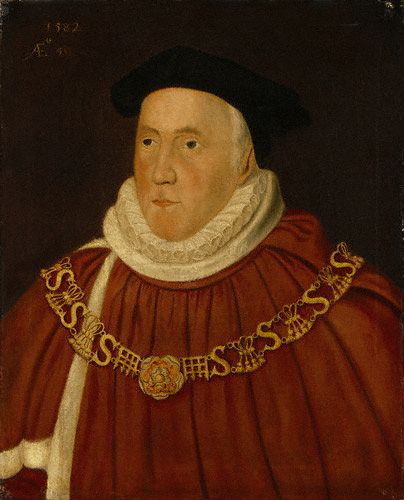An Important Statement from Trixie the Cat.
Brothers and Sisters of the Shakespeare Code….
All at Code Headquarters in West London wish you a Very Happy 2024!
Just before Christmas, the Shakespeare Code’s Chief Agent – Stewart Trotter – accompanied by Your Faithful Cat – travelled down to Titchfield in Hampshire to address a packed meeting of the august Titchfield History Society….
Here is Stewart’s talk…
Your Cat read the quotes!
‘Bye, now!

***
The BBC has just televised a three part, three hour, life of William Shakespeare – titled…
The Rise of a Genius.
It makes no mention at all of Titchfield – or even Henry Rosely, the Third Earl of Southampton.
I pronounce his surname ‘Rosely’ because that’s how the aristocratic branch of the Wriothesley family is named in the local Parish Register. The non-aristocratic branch called themselves Risley – and even spelt their surname Risley.
The Third Earl of Southampton called himself ‘Harry’ in his letters and Shakespeare called himself ‘Will’ in his Sonnets. So let’s call them ‘Harry and Will’.
For the last quarter of a century I have taken Will’s link with Titchfield and the Southampton family as a truth universally acknowledged. But clearly it isn’t. Or not by the BBC anyway. So I thought the best thing to do for this talk was to take a fresh look at the evidence to see if it really does stack up.
What it boils down to is this:
Do we believe what Nicholas Rowe says in his ‘Some Account of the Life of Mr. William Shakespear’ – …..the first ever biography of Will published in 1709?
It must be admitted, for a start, that Rowe spells ‘Shakespeare’ without the final ‘e’. Not a good sign.
Rowe writes:
‘What grace so ever the Queen conferred upon Shakespeare it was not to her only he owed the fortune which the reputation of his wit made. He had the honour to meet with many great and uncommon marks of favour and friendship from the Earl of Southampton, famous in the histories of that time for his friendship to the unfortunate Earl of Essex. It was to that noble Lord that he dedicated his Venus and Adonis, the only piece of his poetry which he ever published himself.‘
Rowe forgets that Will had also dedicated Lucrece to Harry – and in 1709 Will’s Sonnets had just been printed. Rowe had a copy – but hadn’t read them. Not a good sign either.
Rowe continues:
‘There is one incidence so singular in the magnificence of this patron of Shakespeare’s, that if I had not been assured that the story was handed down by Sir William D’Avenant, who was probably very well acquainted with his affairs, I should not have ventured to have inserted, that my Lord Southampton, at one time, gave him [Will] a thousand pounds to enable him to go through with a purchase which he heard he had a mind to. A bounty very great and very rare at any time, and almost equal to that profuse generosity the present age has shown to French dancers and Italian eunuchs.’
£1,000 is thought by some to be worth half a million pounds in today’s money – or even a million.
Can we rely on this story? Rowe was a playwright himself – and had just edited an edition of Shakespeare’s plays. He got his information from Thomas Betterton…
….a hugely admired actor, famous for his Hamlet…
…..who had visited Stratford-upon-Avon toward the end of his life to gather information.
Betterton had acted for Davenant – who John Aubrey tells us – believed he was Will’s illegitimate son. Will had certainly been Davenant’s Godfather – and the teenage Davenant had written an ode on Will’s death.
Davenant also knew ‘old Mr. Lowen’ who had been directed by Will – so the story has a provenance going back to the Bard himself.
And in 1806, R.B. Wheeler provided back up evidence. He wrote in his ‘History and Antiquities of Stratford upon Avon….’
‘the unanimous tradition of this neighbourhood is that by the uncommon bounty of the Earl of Southampton, Shakespeare was enabled to purchase houses and land in Stratford’.
But Edmond Malone…..
– an Irish ex-barrister with inherited wealth – was having none of it.
In 1770 he wrote:
‘that Lord Southampton gave Shakespeare a thousand pounds in order that he might complete a purchase is totally unworthy of credit since no such extensive a purchase ever appears to be made by him as will be seen when we come to make an estimate of the property which he possessed.’
Malone never even visited Stratford – but since his time, Shakespeare Scholars have simply repeated what he wrote.
Up to 2011, that is. A finance director turned academic called David Fallow wrote a Ph D for Exeter University in which he showed that purchases Will made between 1597 and 1614 cost him £1,400 – far in excess of the maximum of £60 a year he could have made in the theatre.
He must have had another source of money.
Now it has to be said that Dr. Fallow has other ideas about where the money came from. However, the facts fit Rowe’s account.
But how did Will come to meet Harry? Why did he leave Stratford in the first place?
The BBC series suggests it was simply an ambition to be a writer: but in the reign of Elizabeth that would have been suicidal.
Robert Greene…..
……whom the BBC presents as the successful ‘University Wit’ who gave Will his first writing break – ended up in the garret of a kind-hearted cobbler who found him dying of starvation in the street.
Rowe has a far more convincing story. He states that Will, on leaving school, joined the family business – butchery and gloving:
‘In this kind of settlement he continued for some time, till an extravagance that he was guilty of, forced him both out of his country and his way of living which he had taken up, and though it seemed at first to be a blemish on his good manners, and a misfortune to him, yet it afterwards happily proved the occasion of exerting one of the greatest Genius’s that ever was known in dramatic poetry.
He had by a misfortune common enough to young fellows, fallen into ill company; and amongst them, some that made a frequent practice of deer-stealing, engaged with them more than once in robbing a park that belonged to Sir Thomas Lucy of Charlecote, near Stratford.
For this he was prosecuted by that Gentleman, as he thought, somewhat too severely; and in order to revenge that ill usage, he made a ballad upon him.
And though this, probably the first essay of his poetry, be lost, yet it is said to have been so very bitter, that it redoubled the prosecution against him to that degree, that he was obliged to leave his business and family in Warwickshire, for some time, and shelter himself in London.‘
Malone, again, dismisses this story: but it is backed up by three different sources that pre-date Rowe – including a man called Thomas Jones – born in neighbouring Tarbick three years before Will died. He not only remembered the story – but remembered the ballad as well, which he sang way into his nineties! It has a refrain of:
‘Lucy is lousy’.
Joshua Barnes, a Cambridge don, reported, in the 1680s, he had heard the words of the ballad sung by his hostess at a Stratford inn – and in 1688 Richard Davies – an Oxford man – inherited notes about Will from a Gloucester clergyman called William Fullman. Davies records:
‘Shakespeare was much given to all unluckiness in stealing venison and rabbits, particularly from Sir — Lucy who oft had him whipped and sometimes imprisoned and at last made him fly his native country to his great advancement’.
At the end of his account Davies writes:
‘He died a Papiste’.
This hits the crux. Robert Dudley, the First Earl of Leicester……
……moved to Kennilworth – a dozen miles from Stratford – when Will was twelve years old. Leicester – an intimate of Queen Elizabeth – claimed to be England’s leading Puritan and terrorised Roman Catholics. Thomas Lucy was his agent.
We know Will’s father, John, was also a Catholic because he signed a Testament of Faith which he hid in the walls of his house. The authenticity of this document was, of course, challenged by Malone. But other Testaments were later found in other places with exactly the same wording.
John Shakespeare had once been the Bailiff of Stratford and so rich he actually lent money to the Council. But his recusancy led him into direct conflict with the authorities and this ruined his business. He had to take Will out of school – but it seems a Catholic network was at hand to help.
John Cottom – a Lancashire Catholic who came to teach at Stratford – recognised Will’s talent and managed to get him a position as children’s entertainer with the Catholic Hoghton family at Hoghton Tower.
But Hoghton died, and Leicester’s thugs were circling, so Will had to return Stratford.
He wooed Anne Hathaway…..
…..eight years his senior – with ballads and songs – one of which we still have – and married her when she became pregnant. It was at this period – around 1582 – that Will began poaching Lucy’s deer – first to help feed his family, but later to take a Catholic revenge.
Leicester had accused Will’s aristocratic cousin, Edward Arden……
…….of plotting to assassinate Queen Elizabeth – and had him hanged, drawn and quartered in 1583.
When Will wrote his scandalous poem about Lucy – and according to Betterton hung it on the gates of Charlecote Park…….
……..Will had to flee. Again the Catholic network, it seems, was there to help him. It engineered a collaboration with Thomas Kyd……
…..not a University Wit as the BBC series asserted, but a fellow grammar school boy – a ‘grammarian’- from a Catholic family.
Evidence for this can be found in the pamphlets of the University Wits Robert Greene…..
…and Thomas Nashe……
…..who describe Will and Kyd as:
‘deep read Grammarians, who having no more art in their brain, than was nourished in a serving-man’s idleness, will take upon them to be the ironic censors of all, when God and poetry doth know, they are the simplest of all.’
According to the Wits, Will and Kyd, had day jobs in Westminster as ‘noverints’ – that is to say, solicitors’ clerks – which was the profession Kyd’s father followed. They would write by candlelight at night. And then….
‘for recreation, after their candle stuff, having starched their beards most curiously, make a peripatetical path into the inner parts of the City…‘
…..where Elizabethan gentlemen got up to no good.
To make sure readers knew who the grammarians were, the Wits quote the ‘kid in Aesop’ and Will’s ‘killcow conceit’ – a reference to Will’s former profession as a butcher and glover.
Will was the junior collaborator to Kyd, who was already established. Computer analysis suggests that Kyd produced early versions of Hamlet, King Lear, King John, Henry V, and The Taming of the Shrew or The Taming of a Shrew as it was then called.
According to a coded poem by Ben Jonson…..
…..Will Shakespeare….
……‘the poet-ape who would be thought our chief’…..
…..bought the rights to these plays when Kyd died in 1594 and developed them into the masterpieces they became. In the BBC series there was hardly a mention of Will’s extensive collaborations – or the fact he lifted the vast majority of his plots from other men’s work.
Richard Simpson – an Anglican priest in Queen Victoria’s reign who converted to Rome – was the first person in modern times to suggest that Will was a Catholic. But Simpson also traced – through the coded satires of Greene and Nashe – a massive influence on Will of a radical Anglican priest, poet and printer, Robert Crowley, the Rector of St. Giles Without Cripplegate.
Greene writes:
‘If they [Kyd and Will] come to publish anything, it is either distilled out of ballads or borrowed of theological poets and he that cannot write true English without the help of clerks of Parish Churches will need make himself father of interludes…in charity be it spoken, I am persuaded the sexton of St. Giles without Cripplegate would have been ashamed of such blasphemous rhetoric.
And Nashe writes:
‘I must needs send such idle wits [Kyd and Will] to shrift to the Vicar of St. Fooles….their ghostly father.’
Crowley believed that all wealth should be voluntarily re-distributed – and gave his own stipend to the poor. He believed that everything should be shared – and that everything should be simple and natural. He hated artifice in language and artifice in adornment. He hated wigs and he hated make-up. These are the massive themes of Will’s Sonnets – and the great, later plays.
But how did Will – a committed Catholic – come to meet Crowley – a priest so Protestant he refused to wear a surplice?
St. Giles without Cripplegate was the Church Sir Thomas Lucy used when he was in London. His second daughter, Margaret, who died at around 19 is buried there – and there is a memorial to his granddaughter, Constance Whjitney. It would only be natural for Will to try to enlist the priest’s support in his ongoing battle with Lucy. In return Will wrote the quasi-Biblical play The Fair Em to please Crowley – and toured the Midlands with it in Lord Strange’s Company.
So, if Rowe was right about Lucy, it could well mean that he was right about Harry and the £1,000 as well.
The Spanish Armada in 1588 spelt the death – for a time – of the theatre. The public were engaged in their own drama with Spain – and actors were seen as shirkers. Kyd joined Lord Strange’s household and Christopher Marlowe……
– whom Kyd and Will had befriended in London – joined Bess of Hardwick’s.
What happened to Will?
The great Shakespeare scholar, John Dover Wilson…..
……believed that Will joined Mary Southampton’s household in Titchfield as tutor to her teenage son, Harry – another indication that there was a Catholic network at work as the Southampton family were ardent followers of the Old Faith.
John Aubrey also states that Will…
‘understood Latin pretty well because he had been in his younger years a schoolmaster in the country’.
But was the country Hampshire?
****
To find out read ‘When Will met Harry: Part Two’!!!




















